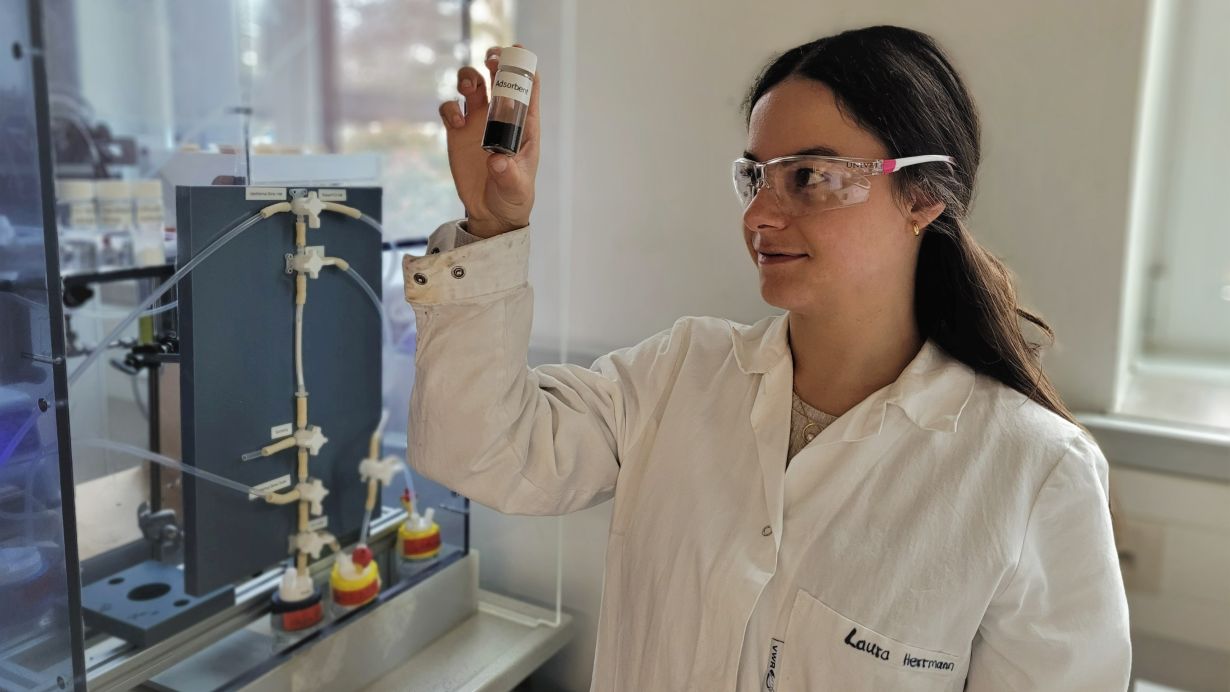
Geothermal technology not only enables sustainable supply of electricity and heat, but also regional lithium extraction. Researchers from Karlsruhe Institute of Technology (KIT) and EnBW have produced a lithium-ion sieve from a lithium-manganese oxide and used it to adsorb lithium from geothermal brines. In the future, the use of domestic lithium sources can help to meet the increasing demand for the light metal, which is indispensable as an energy storage material. The researchers reported in the Energy Advances journal. (DOI: 10.1039/d2ya00099g)
A sustainable energy supply requires efficient energy storage. Lithium has become indispensable - the light metal is used in the batteries of many technical devices and vehicles, from smartphones and notebooks to EVs. In recent years, demand has risen sharply worldwide. Until now, Europe has been dependent on imports. However, there are also European lithium deposits, namely thermal waters at a depth of a few kilometers. They contain high concentrations of lithium ions. In this way, geothermal systems, which pump hot water from the depths, are not only usable for the sustainable supply of electricity and heat, but also for an environmentally friendly, regional lithium extraction.
High Lithium Concentrations in the North German Basin and in the Upper Rhine Graben
"Depending on their geological origin, geothermal brines contain between 0.1 and 500 milligrams of lithium per liter," explains Professor Helmut Ehrenberg, head of KIT's Institute for Applied Materials - Energy Storage Systems division (IAM-ESS). Lithium concentrations of up to 240 milligrams per liter were measured in the North German Basin, and up to 200 milligrams per liter in the Upper Rhine Graben. "However, the extraction of lithium from geothermal brines represents a major challenge because the lithium ions competed with many other ions," Ehrenberg adds.






